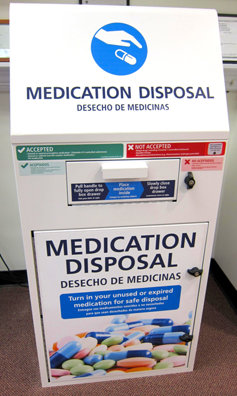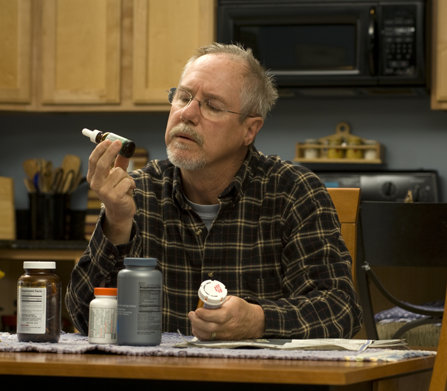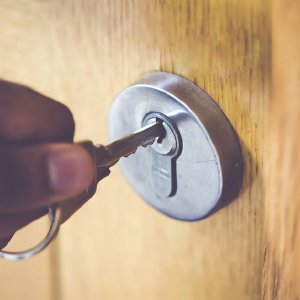We Just Celebrated National Prescription Drug Take Back Day—What’s Next?

April 27th was “Prescription Drug Take Back Day,” a day which is celebrated in both April and October. The event was initially created and sponsored by the Drug Enforcement Administration. And why do we need two days per year where we all get together and dispose of unused prescription drugs? Because the United States is stuck in the worst pharmaceutical addiction crisis our country has ever seen. Even though pharmaceutical drugs are brought to us as the “miracles of modern-day medicine,” all too often these pills have harmful side effects. Addiction is one of them.
The DEA: Reducing the Number of Dangerous Pharmaceuticals in Our Communities
The Drug Enforcement Administration is the organization in the United States responsible for tackling drug diversion, drug crime, drug trafficking, and so on. In 2002, the DEA announced an official “National Prescription Drug Take Back Day.” The “day” was set to occur twice a year. Since 2002, the DEA has put this event on every April and every October. The DEA has occasionally hosted more than two events per year. And other organizations have taken up the mantle, creating special events all across the country, and setting up permanent locations for the safe disposal of prescription drugs.
Last month, the DEA held their 17th annual prescription drug take back day, Spring edition. The event took place on April 27th. The next one is set for mid-October of this year.
To set this up, local DEA offices in all large cities work together with community partners to establish "Prescription Drug Drop Off Sites." Such drop off sites usually operate for a weekend or longer, sometimes a full week. DEA members and volunteers staff the drop off sites. The drop off sites receive significant promotion within the city, and each drop off location usually collects and disposes of thousands upon thousands of individual pills every time such an event is held.
Another goal of these DEA events is to raise awareness on the harm of prescription drug misuse, to encourage locals to turn in unused drugs for safe disposal, and to inform residents on where the permanent, year-round drop off locations are located.
How to Find a Drug Take Back Program in Any City
The DEA was the organization that started the prescription drug take back idea. But since 2002, this idea has taken off, soaring in popularity and use. Now there are thousands of locations, clinics, and pharmacies all across the country that can assist locals in safely disposing of unwanted medications.

If someone has excess prescriptions kept within the house, we strongly encourage them to dispose of those pills safely. Leaving unused pharmaceutical drugs out in a home creates the same kind of risk that one would create from leaving out toxic chemicals, sharp objects, pest poisons, etc. Some would say that since addicts and inquisitive youth are often searching out prescription drugs to experiment with, leaving pills out is more harmful than leaving out the other-mentioned substances.
Unused pharmaceuticals need to be disposed of, especially if those pharmaceuticals are at all addictive, habit-forming, or capable of causing an overdose.
But how does one find a drop off center so they can safely dispose of their meds? Thankfully, these locations are well publicized and easy enough to locate. The National Association of Boards of Pharmacy has a search locator tool on their website. One can simply enter their city or zip code into the search box and click the “Search” button. The locator will bring up any prescription drug disposal locations in the area.
Another way to quickly find a prescription drug take back center is by searching the department of health directory for the state one lives in. For example, the state of Tennessee (one of the prescription drug abuse capitals in the U.S.) has recently perfected their prescription drug take back/drop off process to combat the state’s pharmaceutical addiction epidemic. Tennessee’s map clearly shows dozens of convenient locations across the state, and their Department of Mental Health and Substance Abuse Services has helpful information on how to go about dropping off pills at one of their centers.
Most states have similar resources to what Tennessee offers. To find any state’s directory of prescription drug drop off sites, use a third party search from a group like the National Association of Boards of Pharmacy, or visit that state’s department of health website or local office and request a directory.
Why Do We Need Prescription Drug Take Back Programs?
According to the Centers for Disease Control and Prevention, about 218,000 people die in the United States from overdoses relating to prescription opioids. That does not even account for overdoses which occurred during that period on other types of pharmaceutical drugs.
The death rate from prescription opioids in 2017 was five times higher than it was in 1999. We have a pharmaceutical addiction epidemic on our hands, and it’s a deadly epidemic. That is why we must take extra precautions to ensure that prescription drugs are kept out of our homes.
Make a Commitment to Dispose of Unused Prescription Drugs
For decades, our country’s drug problem revolved around illegal street drugs. But that’s not the way it is anymore. Yes, we still do have a terrible street drug addiction epidemic with new narcotic strains being added to the illegal drug supply every month. But the developing problem that few people predicted was that we would also struggle with an addiction crisis to legal, accepted, and encouraged pharmaceutical drugs.
This problem blindsided us in the early 2000s, and our country has been playing catch-up since then. But we’re very aware of the pharmaceutical addiction crisis at this point, and it’s time we all took it upon ourselves to address this issue. One way to do that is to make sure we do not have any potentially addictive medications in our homes.
Sources:
- https://www.deadiversion.usdoj.gov/drug_disposal/takeback/
- https://nabp.pharmacy/initiatives/awarxe/dispose-safely/
- https://www.tn.gov/behavioral-health/substance-abuse-services/prevention/prevention/find-a-prescription-drug-take-back-box.html
- http://tdeconline.tn.gov/rxtakeback/


 ®
®